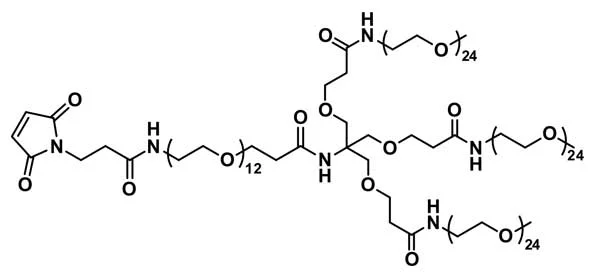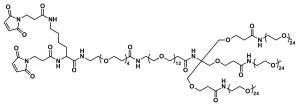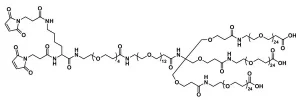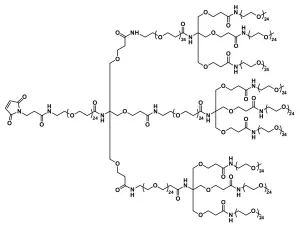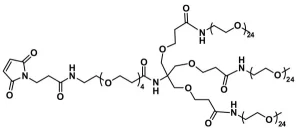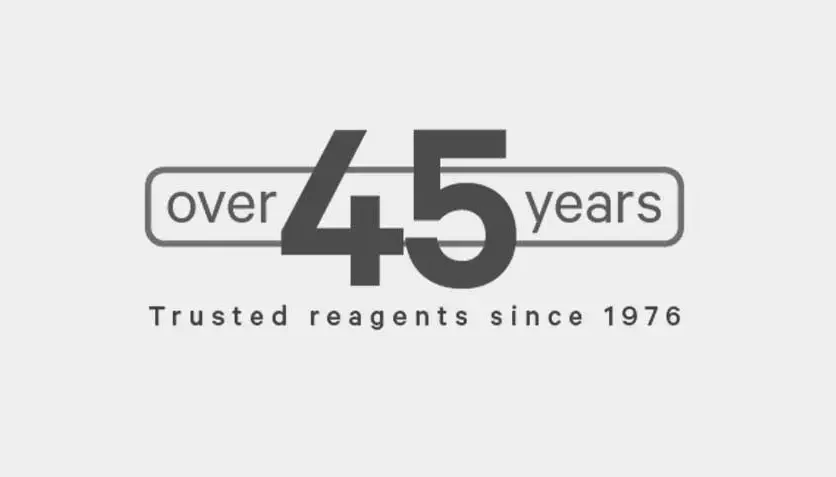Description
MAL-dPEG®12-Tris(m-dPEG®24)3, product number QBD-11471, is a thiol-reactive, methyl-terminated, four-arm monodispersed PEG product designed to modulate biodistribution of conjugates. Tris forms the core of the molecule. Three equal-length methyl-terminated long arms plus one maleimido-terminated short arm extend from the tris core.
The amphiphilic dPEG® construct imparts hydrophilicity to conjugates, reduces or eliminates the conjugates’ antigenicity, and increases the hydrodynamic volume of conjugated molecules. With increased hydrodynamic volume, the renal clearance of conjugate molecules is reduced or eliminated.
The maleimidopropyl (MAL) group reacts chemoselectively with free thiols at pH 6.5 – 7.5 to form stable thioether bonds. Maleimide-thiol conjugations are click chemistry-like reactions and one of the most popular ways to form thioether bonds in biomolecules.
This product is designed for modifying biomolecules like antibodies and antibody fragments but can be used in any bioconjugate application where free thiols are available for reaction. Potential product applications include reducing or eradicating renal clearance, extending in vivo circulating half-life, and suppressing immune responses to conjugates.
References
Greg T. Hermanson, Bioconjugate Techniques, 3rd Edition, Elsevier, Waltham, MA 02451, 2013, ISBN 978-0-12-382239-0; See Chapter 18, Discrete PEG Reagents, pp. 787-821, for a full overview of the dPEG® products.
Site specific discrete PEGylation of 124I-labeled mCC49 Fab’ fragments improves tumor microPET/CT imaging in mice. Haiming Ding, Michelle M. Carleton, Stephen P. Povoski, Keisha Milum, Krishan Kumar, Kothandaraman Shankaran, George H. Hinkle, David Colcher, Rich Brody, Paul D. Davis, Alex Pokora, Mitchell Phelps, Edward W. Martin Jr., and Michael F. Tweedle. Bioconjugate Chemistry. 2013, 24 (11) pp 1945-1954. October 4, 2013. DOI: 10.1021/bc400375f.
Tumor uptake of pegylated diabodies: Balancing systemic clearance and vascular transport. Qing Li, Jason B. White, Norman C. Peterson, Keith W. Rickert, Christopher O. Lloyd, Kevin L. Allen, Kim Rosenthal, Xizhe Gao, Herren Wu, William F. Dall’Acqua, M. Jack Borrok, and Ping Tsui. Journal of Controlled Release. 2018, 279 pp 126-135. April 6, 2018. DOI: 10.1016/j.jconrel.2018.04.013.

